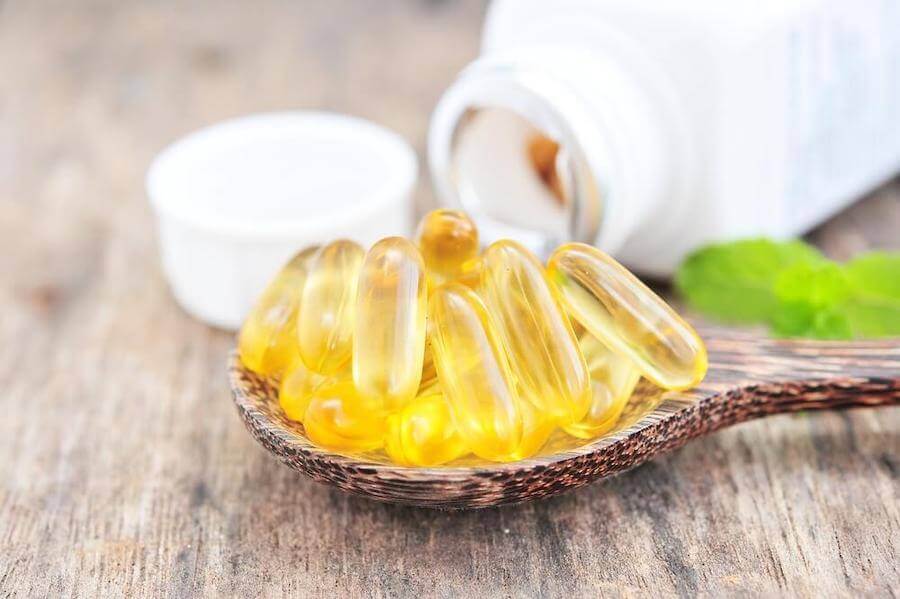5 Supplements You Can Take During Pregnancy

Pregnancy is undoubtedly one of the most exciting and beautiful experiences in a woman’s life. However, it can also be a confusing and overwhelming moment. During this time, it’s helpful to know which supplements you can take during pregnancy, and always under the guidance of a professional, of course.
To clear up any previous doubts, in this article we’ll talk about some of the supplements that you can take during your pregnancy. Just don’t forget to check with your doctor first!
The importance of proper nutrition during pregnancy is essential. Not only is it vital for the mother’s health, but also for the development and general well-being of the baby.
This is the reason why consuming supplements during pregnancy is fundamental. Pregnant women also need to nurture their little ones. In fact, during this time, a mother’s nutrient requirement increases significantly.
You should also know that some women can meet this growing demand through a well-planned and nutrient-rich diet. However, you can also take supplements to compensate for the nutrient deficiency caused by pregnancy.
In fact, you can get these types of supplements in most pharmacies, supermarkets, and specialty stores, and even your general practitioner (GP) can prescribe them.

5 supplements you can take during pregnancy
Here are 5 supplements you can take during pregnancy to nourish your own health and that of your baby.
1. Iron
The need to eat more foods containing iron increases significantly during pregnancy. While this mineral is necessary for a variety of biological functions, iron is usually needed to support the growth and development of the fetus and of the placenta during pregnancy.
Besides, you also need to meet the increased demand for red blood cells to transport oxygen. Consequently, if the level of iron in your blood decreases, the doctor may recommend that you take supplements.
Iron improves growth and development of the baby and, as if that weren’t enough, it also helps prevent anemia, a condition in which the blood has a low number of healthy red blood cells, something very common during pregnancy.
2. Magnesium
Although we don’t realize it, most people have magnesium deficiency because it’s difficult to obtain a sustainable amount from food. Undoubtedly, magnesium is especially important during pregnancy because it offers the mother and the baby many benefits.
It’s essential to supporting tissue growth, which allows the baby to receive more nutrition through the placenta. It also helps immunological, muscular, and nervous functions.
3. Vitamin D
During pregnancy, a deficiency or insufficiency of vitamin D may develop. The body produces vitamin D during exposure to sunlight. However, you can also find it in some fatty fish, eggs, and fortified food products.
Vitamin D supplementation during pregnancy improves the mother’s well-being and may reduce the risk of preeclampsia, low birth weight, and premature delivery.

4. Probiotics
These types of supplements can also help with constipation that some women may experience during pregnancy. Taking probiotics increases the body’s immunity, so they’re beneficial to the mother and useful for when she decides to start breastfeeding.
When taking a probiotic, make sure that the baby receives a good amount of beneficial bacteria. Taking probiotic supplements can help the baby be exposed to more bacteria, which can have a lifelong effect on the child’s immunity and health.
5. Prenatal multivitamins
Finally, prenatal multivitamins are a fantastic supplement that provides the mother with the proper nutrition she needs to maintain a healthy pregnancy.
In fact, it’s recommended to take prenatal vitamins throughout pregnancy, as they contain many vitamins and minerals. The vitamins will help you meet the increased demand for micronutrients during pregnancy.
Finally, we remind you that, in most cases, eating a varied and healthy diet during pregnancy will help you get the majority of the vitamins and minerals you need.
As with any medication, herbal supplements must be approved and supervised by the doctor to ensure that they’re indeed necessary. Always be careful and take them in safe amounts.
Pregnancy is undoubtedly one of the most exciting and beautiful experiences in a woman’s life. However, it can also be a confusing and overwhelming moment. During this time, it’s helpful to know which supplements you can take during pregnancy, and always under the guidance of a professional, of course.
To clear up any previous doubts, in this article we’ll talk about some of the supplements that you can take during your pregnancy. Just don’t forget to check with your doctor first!
The importance of proper nutrition during pregnancy is essential. Not only is it vital for the mother’s health, but also for the development and general well-being of the baby.
This is the reason why consuming supplements during pregnancy is fundamental. Pregnant women also need to nurture their little ones. In fact, during this time, a mother’s nutrient requirement increases significantly.
You should also know that some women can meet this growing demand through a well-planned and nutrient-rich diet. However, you can also take supplements to compensate for the nutrient deficiency caused by pregnancy.
In fact, you can get these types of supplements in most pharmacies, supermarkets, and specialty stores, and even your general practitioner (GP) can prescribe them.

5 supplements you can take during pregnancy
Here are 5 supplements you can take during pregnancy to nourish your own health and that of your baby.
1. Iron
The need to eat more foods containing iron increases significantly during pregnancy. While this mineral is necessary for a variety of biological functions, iron is usually needed to support the growth and development of the fetus and of the placenta during pregnancy.
Besides, you also need to meet the increased demand for red blood cells to transport oxygen. Consequently, if the level of iron in your blood decreases, the doctor may recommend that you take supplements.
Iron improves growth and development of the baby and, as if that weren’t enough, it also helps prevent anemia, a condition in which the blood has a low number of healthy red blood cells, something very common during pregnancy.
2. Magnesium
Although we don’t realize it, most people have magnesium deficiency because it’s difficult to obtain a sustainable amount from food. Undoubtedly, magnesium is especially important during pregnancy because it offers the mother and the baby many benefits.
It’s essential to supporting tissue growth, which allows the baby to receive more nutrition through the placenta. It also helps immunological, muscular, and nervous functions.
3. Vitamin D
During pregnancy, a deficiency or insufficiency of vitamin D may develop. The body produces vitamin D during exposure to sunlight. However, you can also find it in some fatty fish, eggs, and fortified food products.
Vitamin D supplementation during pregnancy improves the mother’s well-being and may reduce the risk of preeclampsia, low birth weight, and premature delivery.

4. Probiotics
These types of supplements can also help with constipation that some women may experience during pregnancy. Taking probiotics increases the body’s immunity, so they’re beneficial to the mother and useful for when she decides to start breastfeeding.
When taking a probiotic, make sure that the baby receives a good amount of beneficial bacteria. Taking probiotic supplements can help the baby be exposed to more bacteria, which can have a lifelong effect on the child’s immunity and health.
5. Prenatal multivitamins
Finally, prenatal multivitamins are a fantastic supplement that provides the mother with the proper nutrition she needs to maintain a healthy pregnancy.
In fact, it’s recommended to take prenatal vitamins throughout pregnancy, as they contain many vitamins and minerals. The vitamins will help you meet the increased demand for micronutrients during pregnancy.
Finally, we remind you that, in most cases, eating a varied and healthy diet during pregnancy will help you get the majority of the vitamins and minerals you need.
As with any medication, herbal supplements must be approved and supervised by the doctor to ensure that they’re indeed necessary. Always be careful and take them in safe amounts.
All cited sources were thoroughly reviewed by our team to ensure their quality, reliability, currency, and validity. The bibliography of this article was considered reliable and of academic or scientific accuracy.
- Al-Sheraji, S. H., Ismail, A., Manap, M. Y., Mustafa, S., Yusof, R. M., & Hassan, F. A. (2013, October). Prebiotics as functional foods: A review. Journal of Functional Foods. https://doi.org/10.1016/j.jff.2013.08.009
- Fine, K. D., Santa Ana, C. A., Porter, J. L., & Fordtran, J. S. (1991). Intestinal absorption of magnesium from food and supplements. Journal of Clinical Investigation, 88(2), 396–402. https://doi.org/10.1172/JCI115317
- García, A. E., López, E., & Sanchez, M. (2015). Importance of iodine and folic acid as supplements in the diet of pregnant women. Neonatal effects. Journal of Perinatal Medicine, 43. https://doi.org/10.1515/jpm-2015-2003
- Inalhan, M., Feyza, Y., Ozlem, T., Ozlem, A., Mehmet, C., & Suera, O. (2012). 747 Ethiological Factors and Prevalence of Zinc Deficiency in Children with Iron Deficiency Anemia. Archives of Disease in Childhood, 97(Suppl 2), A215–A215. https://doi.org/10.1136/archdischild-2012-302724.0747
This text is provided for informational purposes only and does not replace consultation with a professional. If in doubt, consult your specialist.








